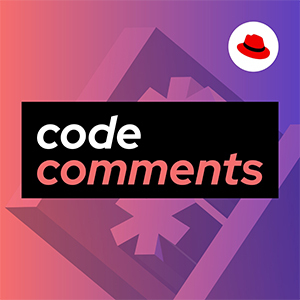
Practical First Steps In Data Governance For Long Term Success
Data Engineering Podcast
Clarity through Data Governance
Implementing a data governance framework ensures clarity by designating data owners to make decisions regarding aspects like security classification and encryption levels. This structure simplifies the process as individuals know who to approach for specific data-related queries. Moreover, having data governance in place enhances the business's ability to articulate their data needs effectively.
Summary
Modern businesses aspire to be data driven, and technologists enjoy working through the challenge of building data systems to support that goal. Data governance is the binding force between these two parts of the organization. Nicola Askham found her way into data governance by accident, and stayed because of the benefit that she was able to provide by serving as a bridge between the technology and business. In this episode she shares the practical steps to implementing a data governance practice in your organization, and the pitfalls to avoid.
Announcements
- Hello and welcome to the Data Engineering Podcast, the show about modern data management
- Data lakes are notoriously complex. For data engineers who battle to build and scale high quality data workflows on the data lake, Starburst is an end-to-end data lakehouse platform built on Trino, the query engine Apache Iceberg was designed for, with complete support for all table formats including Apache Iceberg, Hive, and Delta Lake. Trusted by teams of all sizes, including Comcast and Doordash. Want to see Starburst in action? Go to dataengineeringpodcast.com/starburst and get $500 in credits to try Starburst Galaxy today, the easiest and fastest way to get started using Trino.
- This episode is supported by Code Comments, an original podcast from Red Hat. As someone who listens to the Data Engineering Podcast, you know that the road from tool selection to production readiness is anything but smooth or straight. In Code Comments, host Jamie Parker, Red Hatter and experienced engineer, shares the journey of technologists from across the industry and their hard-won lessons in implementing new technologies. I listened to the recent episode "Transforming Your Database" and appreciated the valuable advice on how to approach the selection and integration of new databases in applications and the impact on team dynamics. There are 3 seasons of great episodes and new ones landing everywhere you listen to podcasts. Search for "Code Commentst" in your podcast player or go to dataengineeringpodcast.com/codecomments today to subscribe. My thanks to the team at Code Comments for their support.
- Your host is Tobias Macey and today I'm interviewing Nicola Askham about the practical steps of building out a data governance practice in your organization
Interview
- Introduction
- How did you get involved in the area of data management?
- Can you start by giving an overview of the scope and boundaries of data governance in an organization?
- At what point does a lack of an explicit governance policy become a liability?
- What are some of the misconceptions that you encounter about data governance?
- What impact has the evolution of data technologies had on the implementation of governance practices? (e.g. number/scale of systems, types of data, AI)
- Data governance can often become an exercise in boiling the ocean. What are the concrete first steps that will increase the success rate of a governance practice?
- Once a data governance project is underway, what are some of the common roadblocks that might derail progress?
- What are the net benefits to the data team and the organization when a data governance practice is established, active, and healthy?
- What are the most interesting, innovative, or unexpected ways that you have seen data governance applied?
- What are the most interesting, unexpected, or challenging lessons that you have learned while working on data governance/training/coaching?
- What are some of the pitfalls in data governance?
- What are some of the future trends in data governance that you are excited by?
- Are there any trends that concern you?
Contact Info
Parting Question
- From your perspective, what is the biggest gap in the tooling or technology for data management today?
Closing Announcements
- Thank you for listening! Don't forget to check out our other shows. Podcast.__init__ covers the Python language, its community, and the innovative ways it is being used. The Machine Learning Podcast helps you go from idea to production with machine learning.
- Visit the site to subscribe to the show, sign up for the mailing list, and read the show notes.
- If you've learned something or tried out a project from the show then tell us about it! Email hosts@dataengineeringpodcast.com) with your story.
Links
- Website
- Master Data Management
- Cartesian Join
- DAMA == Data Management Community
- DMBOK == Data Management Body of Knowledge
- DAMA DMBOK Wheel
- CDMP (Certified Data Management Professional) Exam
- Data Mesh
- Data Governance First Steps Checklist
- The Never Normal
The intro and outro music is from The Hug by The Freak Fandango Orchestra / CC BY-SA
Sponsored By:
- Red Hat Code Comments Podcast:  Putting new technology to use is an exciting prospect. But going from purchase to production isn’t always smooth—even when it’s something everyone is looking forward to. Code Comments covers the bumps, the hiccups, and the setbacks teams face when adjusting to new technology—and the triumphs they pull off once they really get going. Follow Code Comments [anywhere you listen to podcasts](https://link.chtbl.com/codecomments?sid=podcast.dataengineering).
- Starburst:  This episode is brought to you by Starburst - an end-to-end data lakehouse platform for data engineers who are battling to build and scale high quality data pipelines on the data lake. Powered by Trino, the query engine Apache Iceberg was designed for, Starburst is an open platform with support for all table formats including Apache Iceberg, Hive, and Delta Lake. Trusted by the teams at Comcast and Doordash, Starburst delivers the adaptability and flexibility a lakehouse ecosystem promises, while providing a single point of access for your data and all your data governance allowing you to discover, transform, govern, and secure all in one place. Want to see Starburst in action? Try Starburst Galaxy today, the easiest and fastest way to get started using Trino, and get $500 of credits free. Go to [dataengineeringpodcast.com/starburst](https://www.dataengineeringpodcast.com/starburst)


